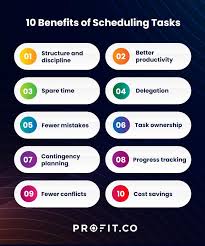Why Do You Need a Schedule?
Creating a schedule helps you manage your time effectively and ensures you are making consistent progress in your studies. A well-planned schedule not only organizes your daily routine but also gives you a clear direction, reduces stress, and improves productivity.

Steps to Create a Perfect Study Schedule
- Identify Your Goals: Write down what you aim to achieve in your academics and personal life. For example, scoring well in exams or completing a specific syllabus.
- Understand Your Peak Hours: Observe when you are most focused (morning, afternoon, or evening) and plan your studies during these hours.
- Divide Your Day: Allocate time slots for study, breaks, meals, exercise, and leisure.
- Use a Planner: Use tools like calendars, planners, or mobile apps to structure your day.
- Be Realistic: Avoid cramming too much into a single day. Set achievable targets.
- Allocate Time for Revision: Spend at least 30% of your study time revising the topics you’ve already learned.
- Stay Flexible: Life happens! Be prepared to adjust your schedule as needed without guilt.

Sample Daily Schedule
Here’s a sample schedule to help you get started:
- 6:00 AM - 6:30 AM: Wake up and freshen up
- 6:30 AM - 7:00 AM: Morning exercise or meditation
- 7:00 AM - 8:00 AM: Study Math (Focus on practice)
- 8:00 AM - 9:00 AM: Breakfast and leisure
- 9:00 AM - 11:00 AM: Study Science (Conceptual learning)
- 11:00 AM - 11:15 AM: Break
- 11:15 AM - 12:15 PM: Study English (Grammar and Literature)
- 12:15 PM - 1:00 PM: Lunch
- 2:00 PM - 4:00 PM: Study Social Science
- 4:00 PM - 4:30 PM: Snack and break
- 4:30 PM - 5:30 PM: Revision
- 5:30 PM - 6:00 PM: Free time
- 6:00 PM - 7:00 PM: Study optional subjects (IT/Hindi)
- 7:00 PM - 8:00 PM: Dinner and relax
- 8:00 PM - 9:00 PM: Light revision or solving mock tests
- 9:00 PM: Sleep

Additional Tips
- Break large tasks into smaller, manageable chunks.
- Use motivational quotes or rewards to stay focused.
- Avoid distractions like social media during study hours.
